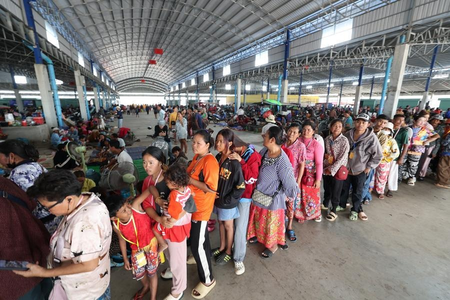
Singapore, May 20 (IANS) Singapore reported 151 new human immunodeficiency virus (HIV) cases in 2024, with 78 of them diagnosed at a late stage of infection, according to the latest data released by the Communicable Diseases Agency (CDA).
About 62 per cent of the newly reported cases were detected during medical care, with the majority already in the late stage of HIV infection.
The fact that more than half of the new cases were diagnosed late is a cause for concern, Wong Chen Seong, head of the national programs for HIV, hepatitis C, and sexually transmitted infections under the CDA, told local media.
He said that although both early- and late-stage patients can typically suppress the HIV viral load to undetectable levels after three to six months of treatment, those diagnosed at a late stage often already suffer from serious complications due to weakened immune systems.
Treatment for late-stage patients involves not only suppressing the virus to prevent further immune damage, but also managing these concurrent illnesses, Xinhua news agency reported.
He added that once the immune system has been compromised, it can take longer to recover, with the duration varying depending on the patient’s overall health, age, and baseline immune status. During this recovery period, individuals are also more vulnerable to other infections.
As of end-2024, a total of 7,137 Singapore residents were known to be living with HIV.
The annual number of new HIV cases in Singapore has been gradually declining over the years, from 300 to 500 cases annually between 2009 and 2019, to around 200 to 250 cases between 2020 and 2023.
According to the World Health Organisation, HIV is a virus that attacks the body’s immune system. Acquired immunodeficiency syndrome (AIDS) occurs at the most advanced stage of infection.
HIV targets the body’s white blood cells, weakening the immune system. This makes it easier to get sick with diseases like tuberculosis, infections, and some cancers.
HIV is spread from the body fluids of an infected person, including blood, breast milk, semen and vaginal fluids. It is not spread by kisses, hugs, or sharing food. It can also spread from a mother to her baby.
HIV can be prevented and treated with antiretroviral therapy (ART). Untreated HIV can progress to AIDS, often after many years.
WHO now defines Advanced HIV Disease (AHD) as a CD4 cell count less than 200 cells/mm3 or WHO stage 3 or 4 in adults and adolescents. All children younger than 5 years of age living with HIV are considered to have advanced HIV disease.
–IANS
int/jk/skp




